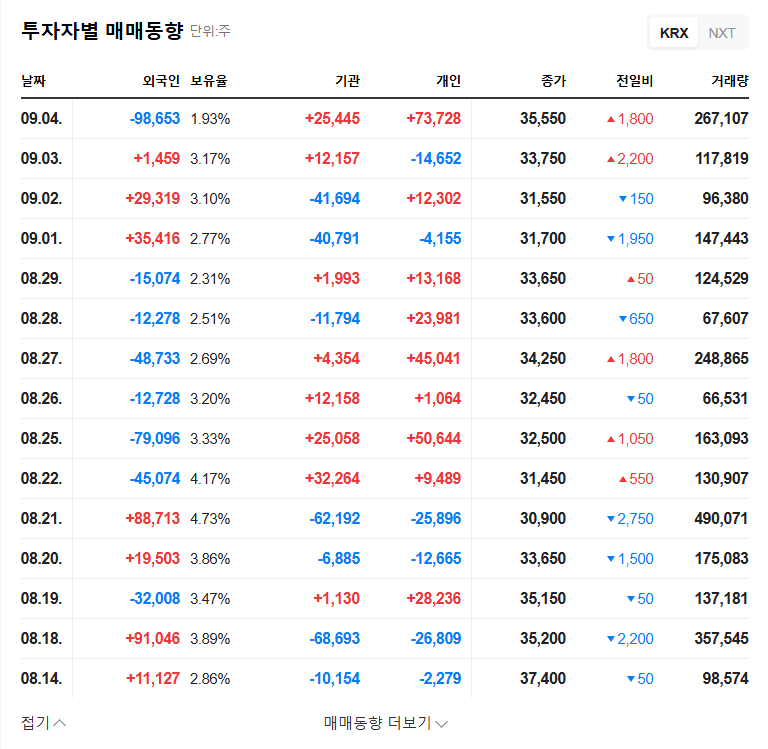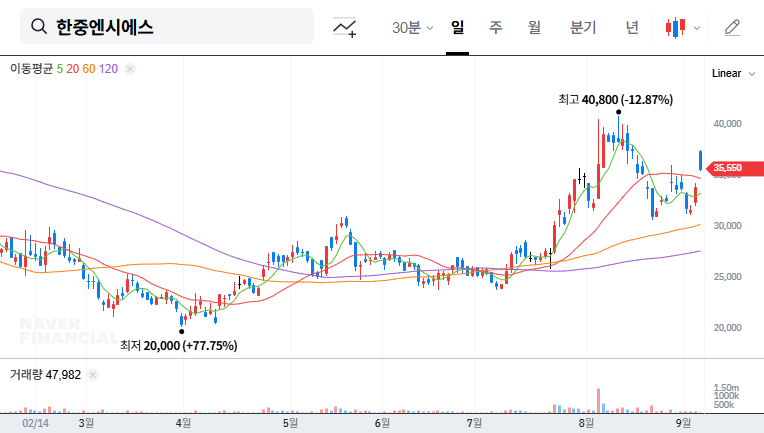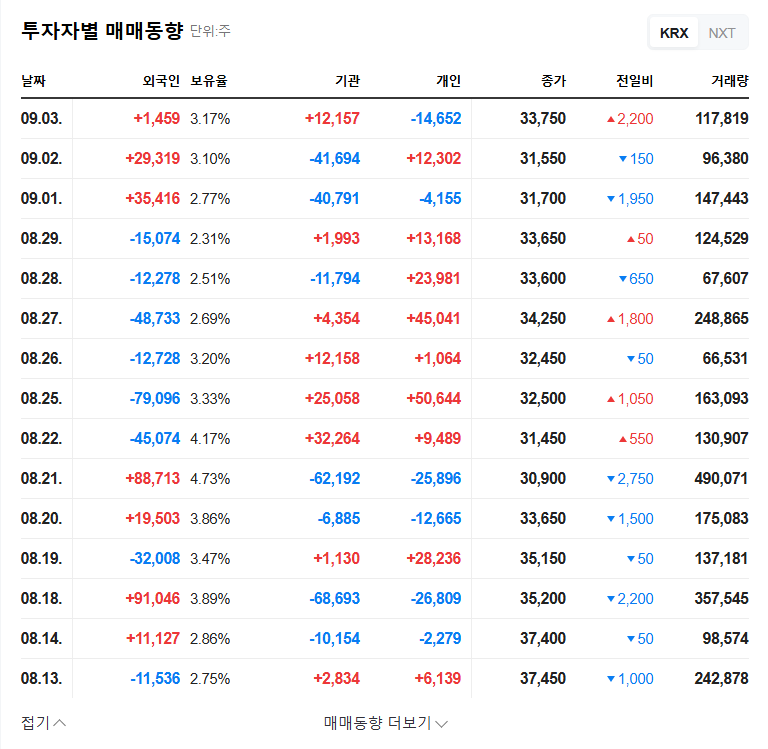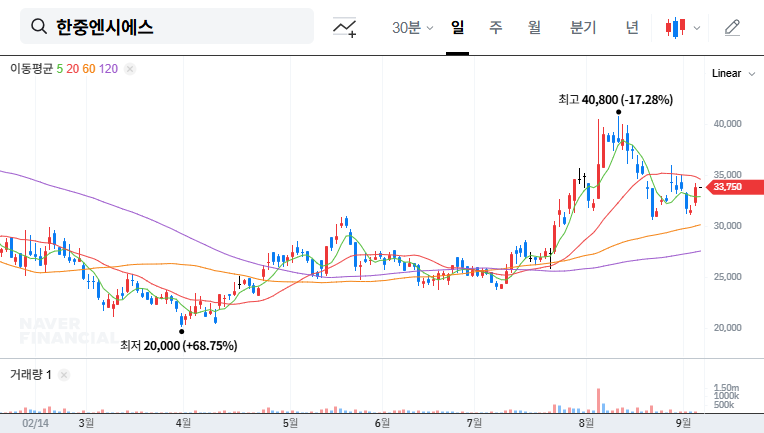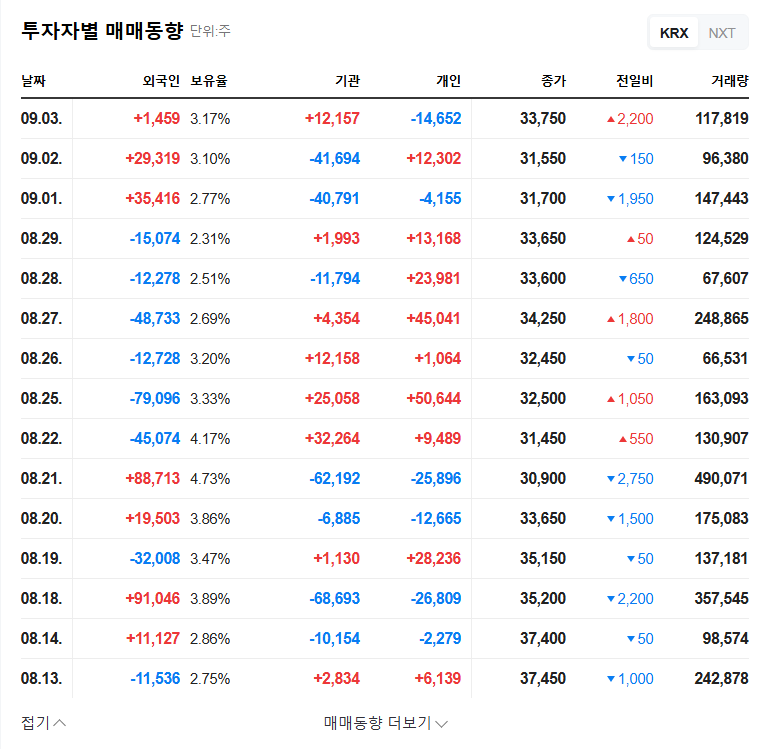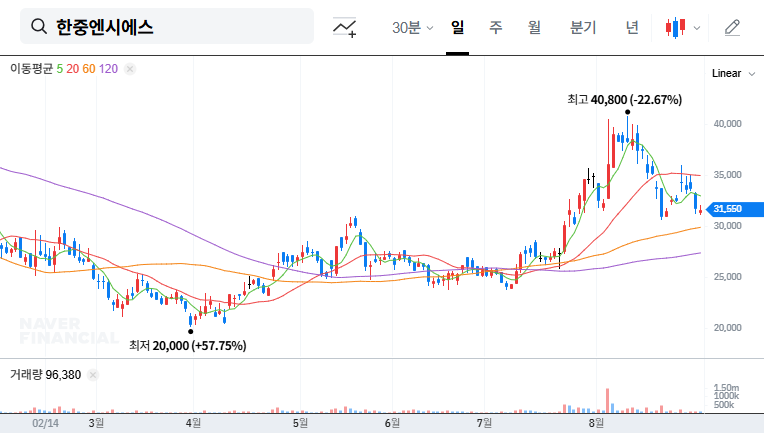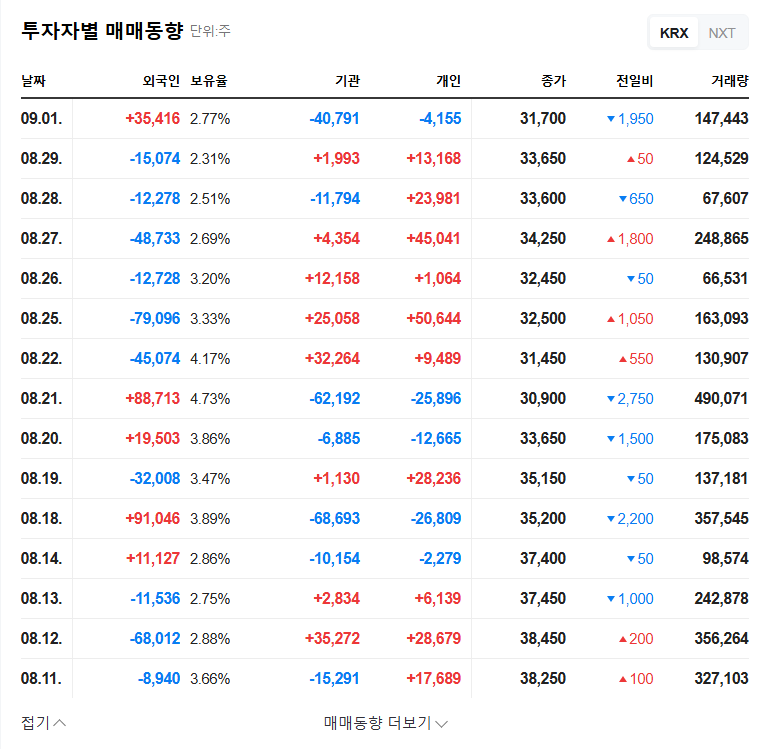
What Happened?
On September 5, 2025, Hanjung NCS CEO Kim Hwan-sik and Oh Seung-ah transferred 1,800,000 and 200,000 shares, respectively, to Kim Sang-gyun. This resulted in a slight decrease in total ownership from 35.49% to 35.47%.
Why Does it Matter?
Hanjung NCS has been struggling with sluggish performance in the first half of 2025. Sales decreased by 6.4% year-on-year, and both operating profit and net income recorded losses. This share transfer under such circumstances could raise concerns among investors. However, the transfer can be interpreted as suggesting the possibility of future management succession or role sharing by increasing Kim Sang-gyun’s stake, rather than a change in management control.
What’s Next?
The share transfer itself is unlikely to directly impact the stock price. However, it can be seen as a sign of the owner family’s commitment to long-term management. Future stock price movements are expected to depend on fundamentals such as earnings improvement and performance in the North American ESS market.
What Should Investors Do?
Investors should focus on the company’s fundamental improvements and long-term growth potential rather than short-term stock price fluctuations. While the growth of the ESS and EV markets and the strengthening of eco-friendly policies can be positive factors for Hanjung NCS, raw material price volatility and intensifying competition pose risks. Therefore, careful analysis is required before making investment decisions.
FAQ
What are Hanjung NCS’s main businesses?
Hanjung NCS’s main businesses are ESS (Energy Storage System) and automotive parts. In particular, they are pursuing entry into the North American ESS market based on their water-cooled cooling system technology.
What is the impact of this share transfer on the stock price?
The share transfer itself is not expected to have a significant impact on the stock price. However, it implies management stability and the possibility of succession.
What is the outlook for Hanjung NCS?
While the growth of the ESS and EV market is positive, overcoming sluggish performance and strengthening competitiveness are crucial. Success in the North American ESS market will be a key variable.

